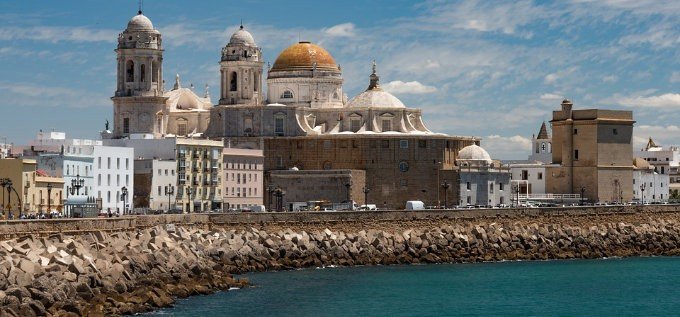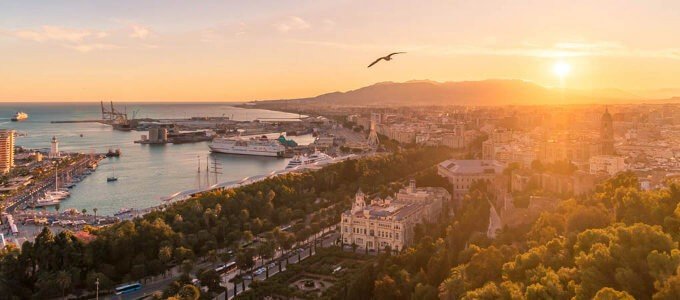Spain Non-Lucrative Visa Program:
Ultimate Guide 2023
-
AUTHOR
Andre Bothma -
LAST UPDATED
January 4, 2023
Looking to add sun, sangria and tapas to your diet in 2023? For foreigners seeking to settle in Spain without getting a job, marrying a Spaniard or investing, the Spanish Non-Lucrative Visa offers an excellent path to residency and eventual Spanish citizenship – and it’s not just intended for retirees…
Find out more about this residency visa program below, or contact us now to request a consultation with a Spanish immigration expert.
In this In-Depth Article...
While many people think of the Spanish Non-Lucrative Visa (NLV) as a retirement visa, the program is well suited to a far wider range of applicants. Provided you have adequate financial means to support yourself and any dependents while living in Spain, the Non-Lucrative Visa offers a simple path to Spanish residency.
It also offers a potential path to Spanish citizenship and passport, but more on that a bit later…
What makes the Non-Lucrative Spanish Visa especially attractive is the fact that you don’t need to start a business or make a significant property investment to qualify, as is the case with the Spanish Golden Visa. (You will, however, be required to have an address in Spain.)
While this visa program has some remarkable benefits, there are some trade-offs. Unlike with the Spanish Golden Visa program, you will be expected to spend more than six months per year in Spain in order to keep your residency visa renewable.
So if you’re looking for a back-pocket, “paper residency”, a Spanish Golden Visa might make more sense. But if you’re looking to actually relocate to Spain without the need to get local employment, the Non-Lucrative Visa is a no-brainer…

Additionally, the program’s minimum savings and/or income requirement is somewhat higher than that of Portugal’s D7 Visa Program, and the process of obtaining Spanish citizenship takes more than double the time required in Portugal (5 years+ vs 11 years+).
And finally, unlike with the Portuguese D7 Visa, the Spanish Non-Lucrative program does not allow you to get a job in Spain during your residency (however you can switch to an employment based visa after the first year). You can, however, still work remotely for a foreign employer, or within your own business.
Having said that, Spain remains incredibly popular as an immigration destination, and applicants set on moving to Spain generally aren’t put off by the higher savings requirement or the more significant tax implications.
While the Non-Lucrative Visa is typically very popular among non-EU retirees, the program is open to anyone who can meet the minimum financial requirements and doesn’t need to find a local job in Spain. This includes remote workers, digital nomads, affiliate marketers as well as a range of consultants, digital entrepreneurs and service providers with clients based outside of Spain.
(EU nationals — and until recently Britons, too — don’t need to obtain a residency to live in Spain).
While the Spanish Non-Lucrative program is both very popular and well known, there are number of other EU residency visa programs to consider:
| EU RESIDENCY PROGRAM | Italy Elective Residency | Portugal D7 Visa | Greece Financially Independent Visa | Spain Non-Lucrative Visa |
| Local employment allowed | No | Yes | No | No |
| Minimum stay requirement | Yes (6 months) | Yes (You can’t be absent for longer than six months) | Yes (6 months) | Yes (6 months) |
| Investment required | No | No | No | No |
| Minimum financial requirement (single applicant) | Passive income of €2,597+ per month | Recurring income of €760+ per month | €2,000 per month, or €48,000 in savings | €2,400+ per month, or €28,800+ in savings |
Low financial requirements: A key drawcard of this visa program is its affordability. Unlike with the Spanish Golden Visa, you don’t need to invest in a €500,000 Spanish property. In fact, you don’t need to purchase a property or make any capital investment at all.
Moreover, if you were to recruit the services of a professional to help you with your application, you can expect to pay as little as €3,000 as a single applicant, and around €5,000 for a family of four. Compared to the fees associated with the Spanish Golden Visa (around €30,000+), this is an absolute steal.
A simple process: Applying for the Non-Lucrative Visa is a relatively fast and straightforward process; you can obtain your residency visa in under five months. And can you apply without professional assistance? Absolutely. One of Sovereign Man’s team members did just that in 2020.
But… the Spanish bureaucracy can be tricky to navigate, especially if you don’t speak Spanish. Simply complete the form below if you’d like to speak with a Spanish immigration professional.
Strategic location: Situated in Southern Europe and boasting excellent flight connectivity (outside of pandemic times), Spain is close to a host of key travel destinations and business hubs across Europe.
It is also an excellent place from which to fly to North American and all of Latin America, especially. Whether you’re retiring or working remotely, being in Spain puts the rest of Europe on your doorstep.
Low cost of living: Spain’s cost of living is one of the lowest in Europe, and their property prices are highly attractive – especially outside of the larger cities. The cost of living is typically at least a third cheaper than in the US and Canada, and if you come from a large North American city, you will easily slash your living costs by half.
For those seeking to optimize their living costs or stretch their retirement savings, it is therefore an excellent second (or primary) home location.
Proven path to permanent residency... and eventual citizenship: As a Non-Lucrative resident, you can obtain Spanish permanent residency in as little as five years – provided that you remain financially self-sufficient and spend the minimum required time in-country.
And while the process of obtaining Spanish citizenship is more onerous and takes far longer than in Portugal, it is nonetheless a possibility after 11+ years of being a resident. Unless, of course, you’re from a country that used to be part of the vast Spanish empire.
If you’re a citizen of any country in Spanish speaking Latin America, Brazil, The Philippines or Equatorial Guinea, you could naturalize in Spain and get a passport after only two years.
The Portuguese D7 program, which is an excellent alternative to the Non-Lucrative Visa, tends to favor long-term passive income (pension, royalties, dividends and rental income), however stable recurring income, savings, or a combination of the two can also be used to meet the financial requirements. (In our experience, many consulates also accept salaries and business income.)
In Spain, the situation is similar – both recurring income, savings, or a combination of the two can be used to apply. Yet in Spain, the minimum savings requirement is higher than in Portugal. In the main, however, most applicants for the Spanish Non-Lucrative program tend to apply on the basis of savings only.
For the Non-Lucrative residency program, the minimum savings requirement is calculated based on the IPREM, a financial index focused on the country’s cost of living.
As of 2023, the IPREM’s monthly value is €600, and the minimum monthly requirement, for a single applicant, is set at IPREM x 4 (€2,400).
For every additional dependent, this amount goes up by another IPREM value of €600.
This means that a family of four applying for a NLV will need to show a monthly income of €4,200+.
If you have this much income from stable sources such as your social security or pension payments, then great, you shouldn’t require any savings. But, if your recurring income is lower than this, and you have significant savings, then you can apply based on a combination of the two.
Alternatively, you can even completely substitute income with savings, as a member of the Sovereign Man team did in 2020.
Applying based on savings is arguably the simplest and most effective way to get your application approved. Since the Spanish authorities grant your first residency for 12 months, the government wants to see that you have enough money to sustain yourself in Spain for one full year without working.
So as a main applicant, you will need to have at least €28,800 (calculated as €2,400 x 12) in your bank or brokerage account, plus an additional €7,200 (calculated as €600 x 12) for each dependent you bring with you.
A family of four should qualify with around €50,400+ in savings.
Please note: All income and savings figures cited above should be treated as the bare minimum requirements. It is always better to have more accessible savings available, as the acceptable thresholds are set by each individual consulate, and can vary.
Upon renewing your NLV, it is issued with a 24 month validity, so you’ll then need to show double the savings, unless you apply on the basis of income, in which case the requirement stays the same…
Be sure to confirm the exact requirements from your closest Spanish consulate or embassy and prepare your application based on their confirmed requirements at the time.
While the below list isn’t exhaustive, it will give you a good idea of the documentation you’ll need to apply. Also note that pretty much all your documents will need to be translated to Spanish.
To be able to renew TEMPORARY residency | To eventually qualify for PERMANENT residency |
You need to spend at least six months in Spain each year. | You must meet all three conditions: a) Need to be a temporary resident for at least five years b) Cannot be outside of Spain for longer than ten months cumulatively during that five-year period (on average, can leave for two months a year). c) Can never leave Spain for longer than six months continuously. |
If you’re ready to relocate to Spain in 2021, simply complete the below form to request a consultation with a reputable Spanish immigration professional.
